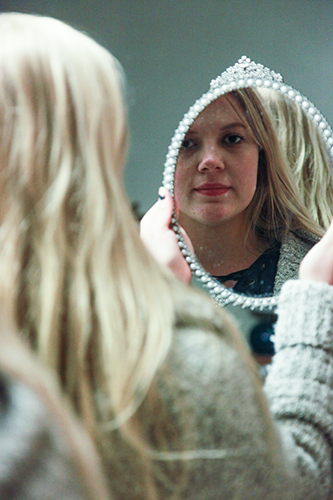In an attempt to refine our online presence, we attempt to edit and choose what we share on our social media accounts like a meticulous museum curator. The masks we put on every morning before class hide our innermost struggles. The almost instinctive act of lying or avoiding our problems — whether familial or financial — is indicative of a natural human propensity to compensate for our perceived insufficiencies. The calm and cultivated disposition we emanate is suppressing our ability to be vulnerable and we must all find a way to have the courage to be honest with the problems plaguing the church today.
We all wear a mask
As college students, we laboriously and perpetually strive to better ourselves in a competitive academic environment. Because of our fallen nature, there will be times where each and every one of us will stumble and fail to meet the numerous expectations placed upon us by our professors and peers. We all wear a mask, not because of an inherently evil nature, but because we simply want to appear as if we are not crumpling under the combined stress from internships, jobs, school work, prospective relationships and the exhausting friendships we constantly attempt to foster.
We fear that without our masks, we will be treated like outsiders. The silent terror of being isolated from the communities, whether it is a group of friends or a church congregation, paralyzes us. If we are to believe in the Aristotelian idea that only God and beast are able to live in complete isolation, then the fear of being rejected because of our flaws and failures is legitimate and justified. However, as Christians, we must be able to embrace those who suffer from certain struggles instead of viewing them as broken lepers.
In a famous speech about the social exclusion, British novelist and Christian thinker C.S. Lewis explained the concept of the “inner ring.” We all want to be included in the ring, and this would not be possible without our masks and the appearance we construct for ourselves. According to Lewis, “Unless you take measures to prevent it, this desire is going to be one of the chief motives of your life, from the first day on which you enter your profession until the day when you are too old to care.”
We must reach out to our neighbors
We must reach out to our neighbors, whether they be our fellow peers or strangers we meet. Ed Stetzer writes in Christianity Today on how “a church without the broken is a broken church.” A broken church is one where members of the congregation wear masks, unable to be vulnerable with fellow brothers and sisters in Christ.
We cannot hide behind our keyboards or be silent about our struggles unless we want to continue harming ourselves. Students must find a way to courageously take off our masks, and we must treat others with kindness and respect.







